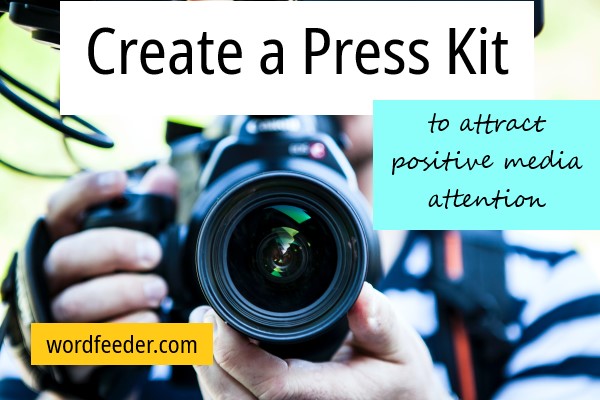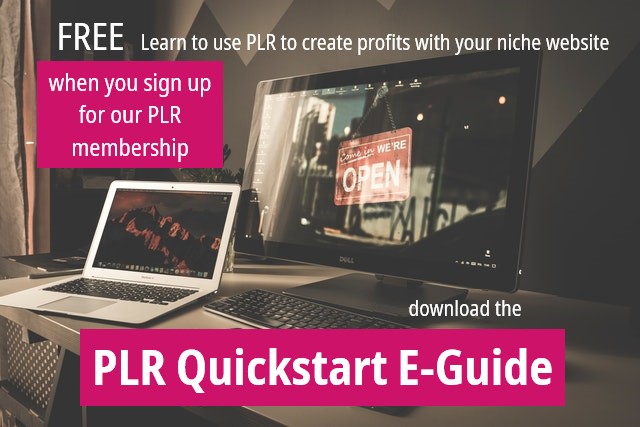How to Create a Press Kit that Attracts Positive Media Attention
Do you promote your business via press releases that you submit on the web and/or to newspapers?
Then you should ideally have a company press kit.
A press kit is, in essence, a media-ready promotional package. Your press kit should be as professional-sounding as possible, and accessible via PDF download format from the PRESS or MEDIA page of your website.
The purpose of a company press kit:
- Provide basic information about your company such as key contact names and address details.
- Communicate the company mission and philosophy.
- Describe the key market you're targeting.
- Detail the biographies of company principles.
- Share company news.
- Allow members of the press to easily upload high resolution photos of key people, logos and products.
Having a press kit on your site makes it easier for members of the media who spot your name out there to grab what they need quickly.
For example, let's say someone comes by and decides to run your story. If for some reason they can't locate the short version of your company bio or your photo, they should be able to access these in your company press release with no problem.
Should they have a question, the press kit will tell them exactly who to contact for answers.
Preliminaries for Press Kit Development:
Plan to print your press kit on company letterhead. You will use the same format for both electronic and print versions of the kit.
Have your graphic design person pull together high resolution photos of the people, products and logos that you want to make accessible to the media.
If you want to create your own press kit, feel free to paste the below template into a Word document and fill it in with your details.
SECTION 1: COMPANY FACT SHEET
Should any of the below not apply to your business, simply delete.
Company Name:
Address: (this should be a physical address, not a P.O. Box)
Key Contact:
Email:
Telephone Number:
Fax Number:
Internet URL:
Ticker Symbol:
DUNS Number:
Chief Executive Officer:
Chief Financial Officer:
Investor Relations:
Public Relations:
Industry:
Key Markets:
Number of Employees:
Company Description:
SECTION 2: COMPANY OVERVIEW
Step 1. Your Products and /or Services. Briefly describe the products and/or services your company provides as well as the primary benefit you offer the customer.
This section should be no longer than two paragraphs.
Step 2. Company Mission and Focus. Describe the mission and philosophy behind the work you do.
This should be about branding your business - communicating your reason for being. Include a couple of well-developed paragraphs at most.
Step 3. Target Audience. Describe your customers - who buys your products, and why?
Identify any and all types of organizations who purchase from you, and their approximate sizes - companies, institutions, individual customers, fundraisers, nonprofits, etc.
Step 4. Clientele. List the biggest names that purchase or have purchased from you.
If you're just starting out, you may choose to omit this section for lack of a substantial number of clients. You can always go back later and add this list as you grow.
Step 5. Market Focus. Describe your target audience including all applicable demographics and psychograpics.
Demographics cover characteristics such as age group, gender, social class, average yearly income, religion, location, and any other relevant factors.
Psychographics are the emotional reasons behind what your key customer buys from you - their habits, attitudes, needs and values. This section should be no longer than a page.
Step 6. Core Values. Describe the core values of your business as they pertain to the work you do.
This is, in essence, a more developed version of the first section where you were asked to define the company mission and philosophy.
SECTION 3: MANAGEMENT
Step 1. Obtain the resumes of all key company officers to use as the basis for the management bios.
Step 2. Obtain detailed answers to the following questions:
Describe the last position you held as it pertains to your expertise in this industry.
What company did you work for, what was your primary role there, how many years experience did you have, and so forth.
Describe your education as it pertains to this expertise - including all certifications you hold.
Include a few personal facts if you like - for example, where you currently reside, what types of activities you enjoy in your leisure time (optional).
Step 3. Create professional sounding biographies for each member of management.
SECTION 4: COMPANY NEWS
Paste in the text from all previous press releases in the exact format that they were published online or in the news media.
SECTION 5: CONTACT INFORMATION
Repeat the following so the media can easily access this information if needed:
- Press contact name
- Company Name
- Address
- Phone
- Fax
- Website
About the Author
Hi, this is Dina at Wordfeeder.com. Please note: I am NOT a Public Relations specialist.
I'm long-time copywriter, currently offering PLR (private label rights) content here on Wordfeeder via an online membership.
When you sign up, you get to instantly access a TON of FREE article packs that are yours to edit and publish under your own name.
You'll also receive frequent emails on the hottest trending topics on the web and the latest deals on pre-written articles, blog posts, email content, and ecourse materials.
This is an awesome way to drive tons more traffic to your blog, create and sell ebooks and ecourses almost effortlessly, and make a good living online while saving tons of money that you would have spent on a writer.


